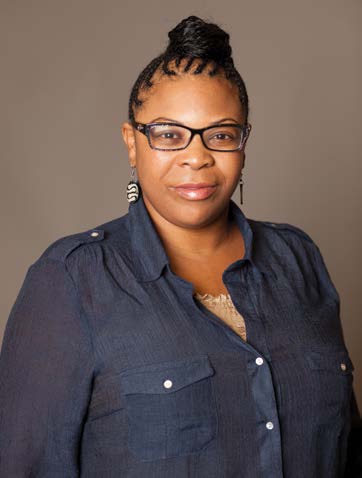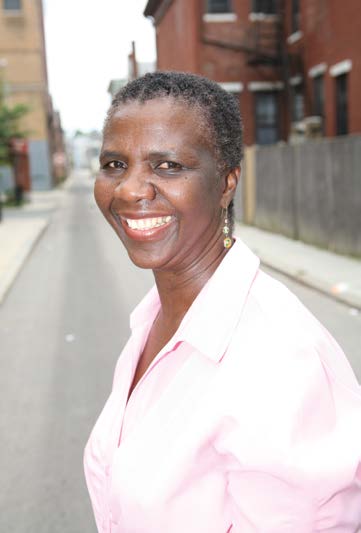Politics & That Gallon of Milk in Your Fridge
April 16, 2019

When talking about the work, Rose says she likes to keep it real. Politics, she says, is not about red or blue or R or D.
“People tell me: ‘I don’t do politics,’” she says. “So then I tell them that everything is about politics. Whether the potholes in your street are fixed or not is politics. Whether there is enough money to pay our salaries is politics.”
“Even how much your groceries cost is politics,” she adds.
If there’s not enough affordable housing, rents will skyrocket, and local stores will feel it too, she explains. So, the price of a gallon of milk goes up to cover rent.
A combination of concrete explanations like these, attention to detail, and a lot of hard work propelled Rose into the top spot in the union’s recent Political Action Committee drive.
“Sometimes members would tell me they were Republicans and they didn’t want to donate to the Democratic party,” says Rose, “But I’d ask them not to get caught up in the red or the blue.”
The truth is, building political action is more about green—the resources to support members and their communities.
“People tell me: ‘I don’t do politics,‘ so then I tell them that everything is about politics. Whether the potholes in your street are fixed or not is politics. Whether there is enough money to pay our salaries is politics.”
Antoinette Rose, a medical records analyst at Montefiore Medical Center in New York, signed up a record number of 1199ers for the Martin Luther King, Jr. Political Action Fund.
Because so much of what happens in members’ day-to-day lives is affected by decisions taken by politicians, getting the right ones elected to office and keeping the pressure on them to act in workers’ best interests is at the heart of the PAC mission. It’s why 1199ers regularly travel to Albany and other capitols and state houses to fight for state money to help fund our community hospitals, nursing homes and other healthcare institutions.

“When I saw the President visit Puerto Rico and throw paper towels at the crowd as though they were second-class citizens, it hurt me to the core,” she says with more than a touch of anger in her voice.
Bentick has also witnessed first hand some of the effects of the opioid crisis at the health center where she works. Making sure the money is there to fund essential services for the most vulnerable in our communities is another central goal driving Bentick’s political work.
In New York, political organizing helped elect worker-friendly politicians like Governor Andrew Cuomo and New York City Mayor Bill de Blasio, win Pre-K for All and institute the Fair Fares Program, a public transportation subsidy for low-income New Yorkers.
“When I saw the President visit Puerto Rico and throw paper towels at the crowd as though they were secondclass citizens, it hurt me to the core.”
Anestine Bentick, a PCA at South Boston Community, makes involvement in political action a priority in her delegate duties.
In neighboring New Jersey, members helped push Phil Murphy over the finish line to win the governorship. Soon after taking office, he signed a $15 per hour minimum wage into law.
Political action is not just about money, though. In Maryland, members pressed for a Clean Energy Jobs Act which includes measures designed to cut air pollution, which disproportionately affects the health of low-income people of color. In Florida, 1199 members supported a ballot initiative which will restore voting rights to well over one million people who have felony convictions on their records. In a state where electoral contests are often decided by a very small number of votes, this new law will mean the outcomes will much better reflect the popular will.
That is the core message Rose carries to the members about political action: make your voice heard. It’s what she communicates to members at Montefiore Medical Center in New York, where she has worked for the past 18 years. Rose also acknowledges that it can mean different things for different people. In discussing political activism with members Rose saw that many of her co-workers had childcare and other real-world responsibilities that made canvassing and attending rallies impossible.
“That is why PAC contributions are important,” she told them, “I don’t have children, so I can get on the buses and do political work around the country. If you can’t do that, you can still help by paying PAC contributions to enable other members to travel.”
Rose, who is also a Union delegate, also spends much of her free time fighting for justice in her community. She recently testified before the New York City Council about a re-zoning project and the need for more affordable housing in her Bronx neighborhood.
“A lot of 1199 of members live in this area,” said Rose. “We need to make sure that they are not pushed out of their current homes by rising rents.”
1199 Magazine | March / April 2019

